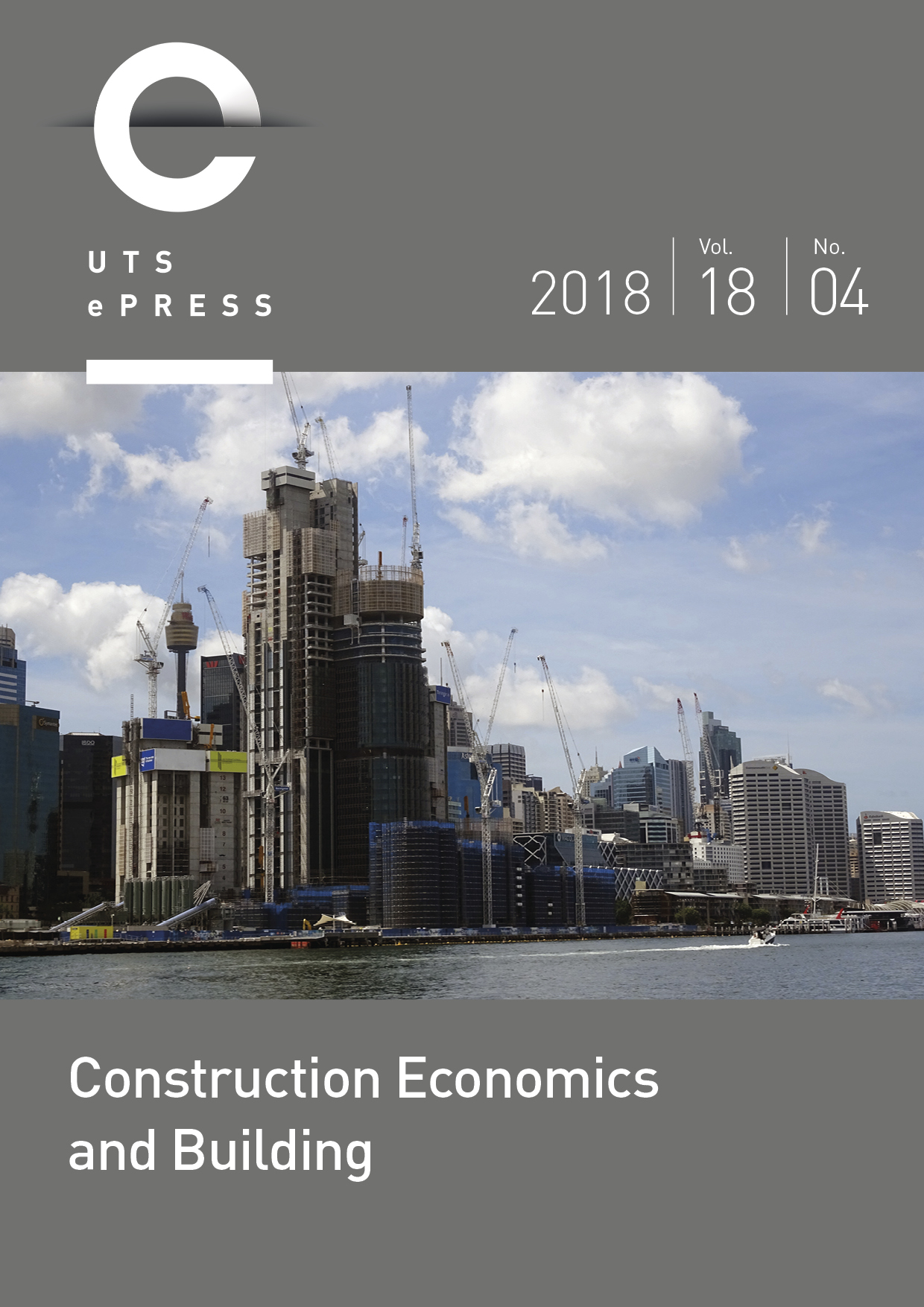Exploring the Strategic Motivation of Internationalisation: Indonesian Contractors’ Perspectives
Main Article Content
Abstract
Although extensive research has been carried out on international construction, scant study in this domain exists which has paid attention to developing economies. The present study empirically investigates the above context from the perspective of one of the largest developing nations, Indonesia. Focus of this study is Indonesian contractors’ motivations to enter foreign marketplaces. An empirical approach integrating quantitative and qualitative techniques was adopted to address the research question. The primary data were collected through questionnaires distributed to large Indonesian contractors. Descriptive statistical method and relative importance index (RII) were employed for data analysis. In the discussion the survey results were triangulated with the interview findings. The results clarify that the reason to pursue overseas projects was motivated by multiple-motivations rather than a single one. The major motivations were to increase profitability, to benefit competitive advantage, to expand business, to capitalize on globalization/free trade regions, to respond to project sponsor’s invitation and to gain international experience. An implication of these findings is that the existing condition of the companies should be taken into consideration when measuring companies’ motivation levels in pursuing overseas projects.
Article Details
Section
Authors who publish with this journal agree to the following terms:
a) Authors retain copyright and grant the journal right of first publication with the work simultaneously licensed under a Creative Commons Attribution License that allows others to share and adapt the work with an acknowledgement of the work's authorship and initial publication in this journal.
b) Authors are able to enter into separate, additional contractual arrangements for the non-exclusive distribution of the journal's published version of the work (e.g., post it to an institutional repository or publish it in a book), with an acknowledgement of its initial publication in this journal.
c) Authors are permitted and encouraged to post their work online (e.g., in institutional repositories or on their website) prior to and during the submission process, as it can lead to productive exchanges, as well as earlier and greater citation of published work (See The Open Access Citation Advantage Service). Where authors include such a work in an institutional repository or on their website (ie. a copy of a work which has been published in a UTS ePRESS journal, or a pre-print or post-print version of that work), we request that they include a statement that acknowledges the UTS ePRESS publication including the name of the journal, the volume number and a web-link to the journal item.
d) Authors should be aware that the Creative Commons Attribution (CC-BY) License permits readers to share (copy and redistribute the work in any medium or format) and adapt (remix, transform, and build upon the work) for any purpose, even commercially, provided they also give appropriate credit to the work, provide a link to the license, and indicate if changes were made. They may do these things in any reasonable manner, but not in any way that suggests you or your publisher endorses their use.
